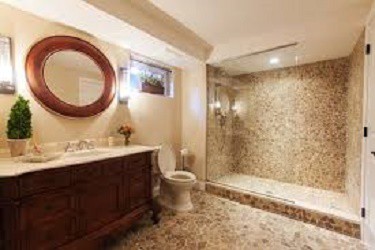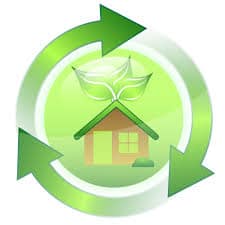Below is a summary of workspace surfaces and how they stand up in the kitchen environment. Keep in mind, countertops may dictate the kitchen design and are sometimes chosen before other fixtures such as cabinetry.
Granite – Riding a wave of popularity for the last several years as the surface for countertops, granite is available in several grades, generally 1 through 5 (ratings depend on where you buy it), patterns, colors and thicknesses. Depending on what you choose, a slab can cost you anywhere from $25 per square foot for modular pieces of very basic stone purchased at a home center to upwards of $1,000 per square foot. Thickness can really drive up the cost. If you want granite on a budget, you might consider a three-quarter inch thick slab rather than an inch and a half slab, where you’re more likely to get your money back at resale.
Engineered stone – These are your quartz surfaces composed of 93% quartz particles and available in a larger range of colors than granite. The nonporous surface resists scratches and stains, and manufacturers generally offer a warranty. Popular brands include Cambria Quartz, Silestone, CaesarStone, LG Viatera and DuPont Zodiac.
Laminates – This surface, frequently referred to by the brand-name Formica, is plastic-coated and available in a range of colors including surfaces that resemble granite. If your budget is tight and you’re doing a quick kitchen overhaul, this is a solution within reach. You’ll have to weigh the resale pros and cons: Does your home value require granite?
Soapstone – These pewter-toned countertops are ideal for historic renovations. They darken over time and require regular maintenance with mineral oil applications, but people like the smooth feel and rich character.
Ceramic tile – You can lay it on the floor, wall and, yes, countertops. You can recover an existing surface, which appeals to DIYers. And with a wide range of colors and textures available in tiles today, options are seemingly endless. But remember, tiles do crack. And perhaps the biggest down side: tiles require grouting.
Solid Surfaces – Otherwise known by the popular brand-name Corian, solid surfaces offer the same seamless look as engineered stone, except these are not resistant to stains and can scratch.
Stainless steel – This industrial-strength surface provides a sleek finish in modern kitchens. It’s easy to clean with soap and water, and it takes hot pans, no problem. But stainless steel can scratch and dent, so you can’t cut on stainless. Plus, it’s a costly surface. You might decide to use stainless in a certain area of your kitchen, such as a dining area or by the range.



